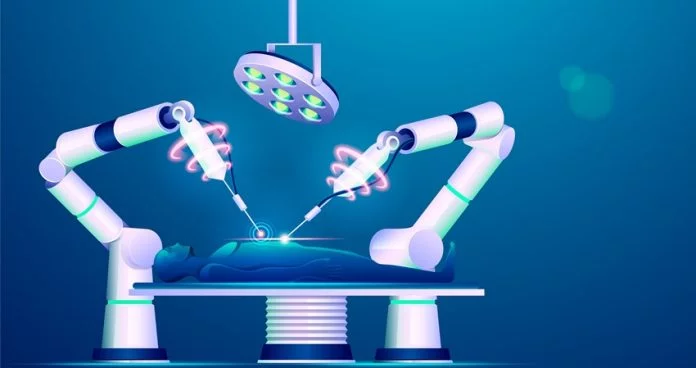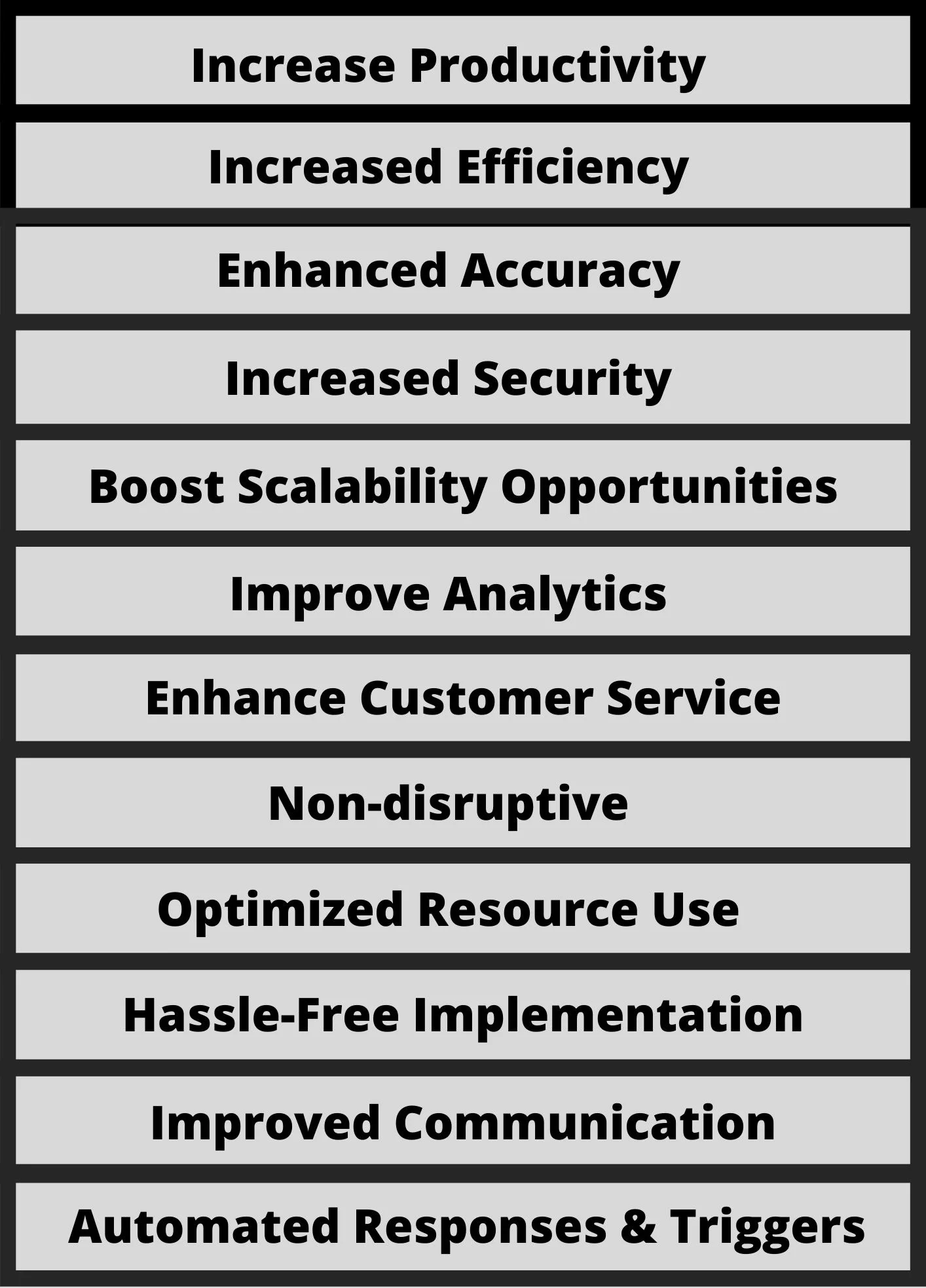Before discussing Robotic Process Automation use cases in healthcare let us have a look at RPA, its examples, and RPA case studies.
The approach of RPA in the healthcare industry automates several tricky tasks. Thus, with the help of RPA, healthcare organizations can improve their efficiency and offer better medical care for their patients.
RPA has changed various industry sectors such as manufacturing, construction, and telecommunication. So, the enlightenment of RPA in healthcare will change the healthcare sector. Implementing RPA in healthcare will offer an achievable solution for several matters related to healthcare. RPA bots will automate rule-based responsibilities in huge volumes. Also, they can generate precise results and dodge errors.
Robotic Process Automation Use Cases in Healthcare
5 Amazing Robotic Process Automation Examples in Practice
Claims administration
In healthcare, RPA is to input and process claims. Thus, RPA could do this quicker and with less mistakes. The tech can also recognize anomalies that don’t comply to save unnecessary payments.
Onboarding employees
RPA gives the ideal solution to assure that every employee’s onboarding is according to the set process. Also, these receive all the information needed to comply with company guidelines.
Scheduling systems
Online scheduling of patients for healthcare appointments can get enhanced with RPA technology. Hence, bots can collect all patient details to make appointment scheduling more effective.
Expense management
Many companies need their representatives to input specifications on expense reports that an RPA bot can impulsively excerpt from submitted receipts.
Pulling data from various websites to find the best deal
When one is looking to travel or purchase a vehicle, wants to get the best deal. RPA tech can assist to it happen by scraping data off websites, matching it, and displaying the best deal.
Healthcare provider instance: Max Healthcare
Problem: Max Healthcare Institute is one of the biggest healthcare strings based in New Delhi, India. They deal with the manner of patient transaction data daily. Some hand-operated processes they require to streamline every day are:
- customer detail recording,
- claims processing,
- and adjustment of data for government health schemes.
The central preference was to increase the efficiency of existing processes. Thus, this was to ensure greater precision and reduction in turnaround time. Yet, the institute needed to start low and mount up as and when required.
Solution: They partnered with an RPA consulting firm to identify areas where automation can get implemented. Also, where the maximum impact could get achieved. Thus, the institute chose an RPA platform to handle the following processes more efficiently:
- Claims Processing
- Data Reunion for Central Government Health Scheme
- Data Reconciliation for Ex-servicemen Contributory Health Scheme
Results: Max Healthcare was capable to lessen turnaround time (TAT). Thus, for claims processing, the TAT is lessened by at least 50%. CGHS & ECHS have obtained time savings in the range of 65%-75%.
Major U.S. Healthcare coverage administrator automates appeal processing
Problem: The company must examine cases when members submit a policy complaint. Thus, members request appeals by different channels such as email, fax, phone, or a web form. Information regarding member names and complaint types is manually recorded from many channels to begin the appeal process. Those manual steps were time-consuming. Therefore, errors and delays in the appeal were costly for the company.
Solution: The company selected an RPA solution to resolve this problem. Thus, it can obtain data from emails practicing robotics and OCR, then can use ML models to examine and route requests into chains.
Results:
- Hand-operated work is decreased by 85% over the process end-to-end, from data extraction to policy decision
- Timestamp and additional data were extracted at a 99% accuracy rate, up from 62%
- Routing time is decreased by 3 minutes
Simplifying patient appointment scheduling
Patients usually schedule appointments online. Healthcare institutions have to get personal information, diagnosis, and insurance details. Thus, scheduling appointments based on patient data can be a tiresome process. Furthermore, patient appointments have to get adjusted with different doctors’ schedules.
The appointment has to be fixed according to the neurologist’s timings if a patient needs to get treated. If any doctor is unable to attend to the patients, then the hospital staff must inform the patients beforehand. So, scheduling patient appointments can be a complicated task. Executing RPA in healthcare can resolve all matters associated with scheduling appointments.
RPA bots can make patient data compilation and processing automated. Also, they can schedule patient appointments as per the diagnosis and other criteria. Also, these systems can scan patient data to produce a report to present a referral management representative to set the appointment.
They can also inform patients when doctors are unavailable for the appointments. For example, a cardiologist with a time-consuming operation might be unable to serve their patients. RPA can follow the cardiologist’s calendar to inform patients of unavailability.
Speeding up account settlements
Healthcare institutions have to monitor, calculate, and estimate bills collected during the treatment of each patient. Processing such data can be tedious and can have multiple errors. Maintaining records for every facility is also essential for the accurate computation of each patient’s bill.
Hence, the entire process can become very complex for the hospital staff. RPA bots can determine the bill outlay estimating the costs for tests, medications, wardroom, edibles, and expert fees. This software can inform patients of their bill amount and can also receive payments.
By embracing RPA in healthcare, payment delays can be diminished. Also, can reduce errors associated with the calculation of bill amounts. Henceforth, RPA in healthcare services can speed account settlements.
Streamlining claims management
According to stats, approximately 91.2% of Americans have health insurance coverage. Handling insurance claims involve processes like:
- data input, processing,
- evaluation,
- and dealing with appeals.
Thus, the whole procedure managed manually is inefficient and vulnerable. Old insurance claims procedures can significantly affect the cash flow.
Moreover, around 30-40% of health insurance claims can get denied due to non-compliance with regulations. Ensuring regulatory compliance for insurance claims can be a complicated task. Thus, leveraging RPA in healthcare can cut down the way of managing insurance claims.
RPA bots can do better data processing for insurance claims and desist errors. In this way, RPA bots can desist delays and observe the entire process. Hence, these bots can also identify compliance-related limitations and avoid non-compliance with regulations. So, RPA adoption can improve the efficiency of complicated insurance claims administration procedures.
Implementing discharge instructions
Patients follow post-discharge guidelines to help them with specific symptoms. Also, they get provided with prescriptions and medicines. Checking whether the patients follow discharge instructions is nearly improbable for healthcare institutions.
For instance, after chemotherapy, a patient may experience an upset stomach and a loss of appetite. Then physicians may prescribe medications and recommend follow-up appointments. Thus, healthcare institutions are unable to monitor compliance with such discharge instructions.
Therefore, RPA bots can guarantee the efficiency of release guidelines. Also can give reminders to patients about prescription pick-ups. Thus, by using RPA, patients can know about future appointments and medical tests. Also, these can inform healthcare providers in case any patient requires more support with their condition.
Thus, RPA software is critical for HCAHPS scores. Hence, healthcare providers can improve their patient’s experience. Also, can put in place better healthcare, and lessen readmissions.
Recording audit procedures
The auditing procedure includes many tasks for risk assessment. Storing processes and their results produce reports. These reports provided to concerned parties are for verification and consent. Such audits are for many objectives:
- patient safety
- or quality of services.
These reports generated during healthcare audits are essential for regulative compliance. Hence, collecting the reports from auditing tasks and collaborating with concerned parties can be slow. Furthermore, errors in these reports can occur in non-compliance with regulations. By using RPA in the healthcare industry audit plans can get easily optimized.
Hence, RPA bots can record data and produce reports during audits. These reports can get automatically shared with concerned parties for evaluation and consent. With RPA, hospital staff can watch the progress of these reports. Thus, RPA software can help healthcare organizations ensure responsibility for different auditing procedures. Thus, in case of objection, the person who approved those reports can be immediately identified using RPA software.
Improving the healthcare cycle
Healthcare suppliers gather large volumes of patient data such as personal information, diagnosis, and treatment cycles. As all the data is put in a generic database, extracting and optimizing such data for review can be slow and complicated. Further, the volume of data keeps rising every day with newer patients. So, healthcare providers may have to obtain and optimize data constantly.
Therefore, RPA can register and monitor larger volumes of data. Hence, RPA in healthcare can optimize and obtain their data to generate analytics with the guidance of other digital systems. Such analytics will offer great insights into diagnosis methods and diverse types of treatments.
Implementing such insights, healthcare providers can give correct diagnoses and develop well-tailored treatments. Hence, in this way, healthcare providers can easily track and examine large volumes of data. Also, can spend a majority of their time attending and assisting their patients.
Managing healthcare workflows
Operating a healthcare institution requires many crucial workflows such as:
- managing and coordinating healthcare,
- case and utilization management,
- remote monitoring,
- and population wellness.
These crucial workflows include routine tasks that are vital for healthcare providers. Usually, the workflows are manual, which can be an unproductive approach.
Therefore, the utility of RPA in healthcare services can design and make complex workflows smooth. Removing these routine tasks from human agents to bots can occur in cost savings for healthcare providers. Further, automating crucial workflows will enhance efficiency across the board.
A primary limitation of leveraging RPA in the healthcare industry is that it can only process structured data and can operate with a rule-based strategy. Though, the arrival of IPA will make RPA smarter. Intelligent process automation (IPA) can process unstructured data and make informed decisions. Thus, the applications formed with the help of IPA be even more helpful than RPA.
Conclusion
Nowadays, the population is not only older but also in need of medical assistance. Hence, the question “Who will care for them?” should get addressed promptly. The healthcare industry is one riveted by most eyes, waiting for or at least a direction of an answer.
Therefore, robotic process automation use cases in healthcare grant a speedy resolution. Software robots can provide a helping hand to the industry meeting new demands as times are evolving. Too much care for the increasing number of people changes RPA in healthcare into an entity that is more than a mere option.
Also Read:
RPA in Oil and Gas Sector
Benefits of RPA in Healthcare


